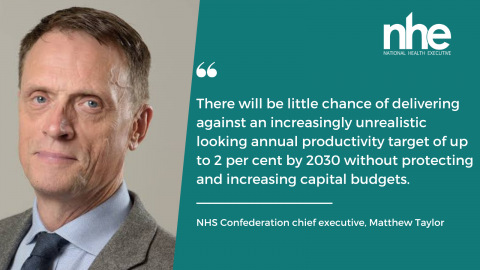In a stark warning to the government, NHS leaders have urged them to reconsider their decision to raid capital budgets in order to cover the costs of industrial action, arguing that this move will further damage productivity and undermine efforts to clear backlogs and boost patient care.

The NHS Confederation, which represents healthcare providers, has expressed concern that the government's plan will have a "devastating" impact on the NHS's ability to deliver high-quality care. Matthew Taylor, chief executive of the NHS Confederation, said: "With the costs of industrial action and inflation eating into budgets, health leaders were desperate to see new money made available to plug the gap in their finances, but instead were offered the 'robbing Peter to pay Paul' solution of diverting money from capital budgets – again."
The Confederation's warning comes at a time when the NHS is facing a number of challenges, including a record backlog of patients waiting for treatment, a crumbling estate, and a shortage of staff. Taylor argues that the government's decision to raid capital budgets will only make these challenges worse. By doing so, it could further damage productivity as a new report from NHS Confederation will suggest next week. The government initially set out its ambitious productivity target in the Long Term Workforce Plan, which was announced in June.
Taylor added, "There will be little chance of delivering against an increasingly unrealistic looking annual productivity target of up to 2 per cent by 2030 without protecting and increasing capital budgets.
"Failure to do so will be setting the NHS – and the new Secretary of State for Health and Social Care – up to fail in its recovery and transformation efforts."
Hannah White, director of the Institute for Government, added: "Capital budgets are already far short of what is needed to repair the NHS’s estate, let alone further improve it. Any serious plan to boost NHS productivity will require sustained higher capital investment."
"Productivity in public services is heavily dependent on the condition and capacity of buildings, the availability of equipment and the efficacy of the technology available to staff. But much of the time we are expecting health leaders to deliver 21st century services with early 20th century resources, and this is severely hindering progress to reduce backlogs, and boost productivity and patient care."
The government has defended its decision to raid capital budgets, arguing that it is necessary to ensure that the NHS has the resources it needs to deal with the current industrial action.
Photo Credit: iStock


















